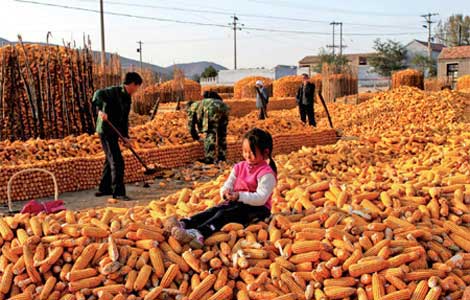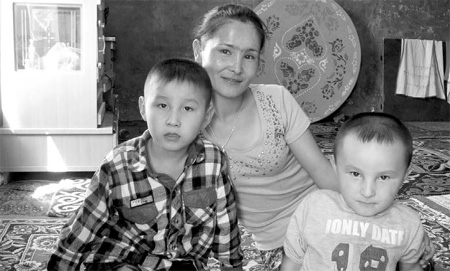Society
Children grateful for heart surgery, chance to travel
Updated: 2011-08-06 07:50
By Wang Ru and Mao Weihua (China Daily)
|
|
URUMQI - Dannia, a 12-year-old Uygur boy, often recalls his one-week trip in Shenzhen, South China's Guangdong province, which brought him his first trip on a plane, first taste of pizza and first swim in the sea.
Accompanying Dannia to a summer camp in Shenzhen that started on July 28 were four Uygur children from the Xinjiang Uygur autonomous region, each of whom had undergone successful heart surgeries in April in Beijing.
"The seawater tastes so salty," Dannia said. "But I really like swimming in the sea, and I don't suffer from shortness of breath anymore."
Since April, 103 children who have congenital heart disease, most of them hailing from poor Uygur and Kazak families in Xinjiang, have undergone surgeries in the General Hospital of the Chinese People's Armed Police Forces in Beijing.
In all of those procedures, the hospital successfully used minimally invasive techniques.
The surgeries are a part of a charity program that was begun in April by the hospital and the China Charity Federation. Those organizations will offer free heart surgeries to children from 1,000 poor ethnic minority families from throughout China in the next three years.
After undergoing a successful procedure on April 16, Dannia was able to free himself from the disease that has tortured him for 12 years.
Dannia was born in the Yili Kazak autonomous prefecture in the northwestern part of Xinjiang. When he was 3, his mother, Aynur, learned that he was susceptible to cold weather and often breathed heavily.
Dannia was diagnosed with congenital heart disease. Quickly, his family of six found that the high surgery fee they would have to pay to treat him - about 100,000 yuan ($15,520) - was far beyond what they could afford.
"Now my heart has no problems," Dannia said. "I am considering which university I want go to study in - Peking University or Shenzhen University. It's hard to decide."
Among the second batch of 17 children who received the surgeries was Kalihaz, a 7-year-old Kazak boy from a village in Urumqi, capital of Xinjiang.
When he was 3, his nose often bled and he was later diagnosed as having congenital heart disease. His parents, who were unable to afford the heart surgery he needed, were told their boy could die from the disease.
On May 25 in Beijing, after a three-hour surgery, Kalihaz woke up. He had spent Children's Day - a day on which many mainland children get out of classes - in Beijing, receiving toys from nurses in the hospital and going to see Tiananmen Square.
"Nurses in the hospital treated me very well," Kalihaz said. "They often called me to ask about my condition."
A year later, he can return to school with a healthy heart.
Since 2005, the hospital has performed surgeries on 3,000 children from poor ethnic minority families.
China Daily
(China Daily 08/06/2011 page2)
E-paper

My Chinese Valentine
Local businesses are cashing in on a traditional love story involving a cow herder and a goddess
Outdoor success
Lifting the veil
Allure of mystery
Specials

Sowing the seeds of doubt
The presence in China of multinationals such as Monsanto and Pioneer is sparking controversy

Lifting the veil
Beijing's Palace Museum, also known as the Forbidden City, is steeped in history, dreams and tears, which are perfectly reflected in design.

Beer we go
Early numbers not so robust for Beijing's first international beer festival

